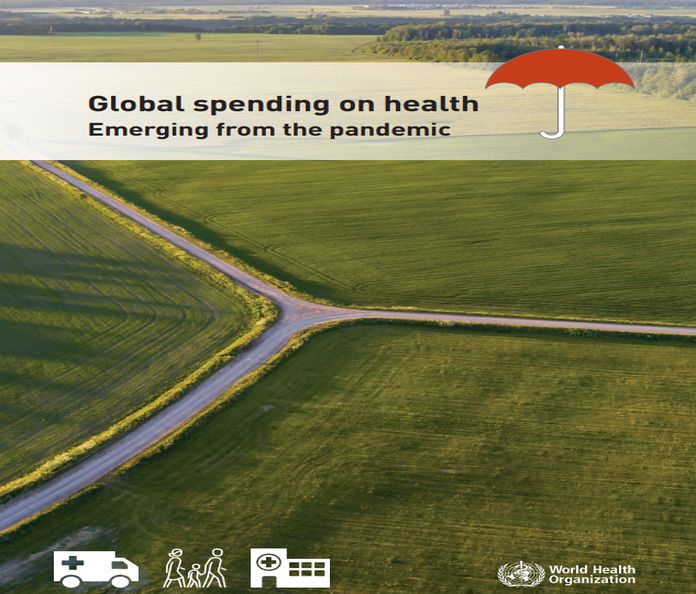 The 2024 Global Heath Expenditure Report by the World Health Organization (WHO) shows that the average per capita government spending on health in all country income groups fell in 2022 from 2021 after a surge in the early pandemic years.
The 2024 Global Heath Expenditure Report by the World Health Organization (WHO) shows that the average per capita government spending on health in all country income groups fell in 2022 from 2021 after a surge in the early pandemic years.
Government spending on health is crucial to delivering UHC. Its deprioritization can have dire consequences in a context where 4.5 billion people worldwide lack access to basic health services and 2 billion people face financial hardship due to health costs.
“While access to health services has been improving globally, using those services is driving more and more people into financial hardship or poverty. Universal Health Coverage Day is a reminder that health for all means everyone can access the health services they need, without financial hardship,” said Dr Tedros Adhanom Ghebreyesus, WHO Director-General.
Who’s paying for healthcare?
Protecting people from financial hardship due to out-of-pocket health costs is fundamental to achieving health for all. Yet, WHO’s report shows that out-of-pocket spending remained the main source of health financing in 30 low- and lower middle-income countries.
The challenges posed by the lack of financial protection for health are not limited to lower-income countries. Even in high-income countries, out-of-pocket payments lead to financial hardship and unmet need, particularly among the poorest households. Most recent health accounts data show that in over a third of high-income countries, more than 20% of total health spending was paid out-of-pocket.
On the occasion of UHC Day, WHO is calling on leaders to make UHC a national priority and eliminate impoverishment due to health-related expenses by 2030. Effective strategies to strengthen financial protection include minimizing or removing user charges for those most in need, including people with low incomes or chronic conditions, adopting legislation to protect people from impoverishing health costs and establishing health financing mechanisms through public funding to cover the full population.
Public funding needs to budget for an affordable package of essential health services – from health promotion to prevention, treatment, rehabilitation and palliative care – using a primary health care approach.
Lessons from the pandemic
During the COVID-19 pandemic in 2020–2022, public spending on health – mainly via government health budgets –enabled health systems to respond quickly to the emergency. This reflects the advantage of government budgets in financing public health functions, in particular population-based public health interventions, versus other health financing schemes, during times of health emergencies. Government funding ensured that more people were protected and more lives were saved.
Emerging from the pandemic, countries are at a crossroads. Governments face difficult decisions as they work to strengthen the resilience of health systems against future health threats while addressing their populations’ healthcare needs in a challenging economic environment.
Twenty-five years of WHO tracking global health spending
The key to making better choices on future health investments is timely and reliable evidence on the level and pattern of health spending. For 25 years the WHO Health Expenditure Tracking programme has had a major influence on how critical information on health spending is compiled and reported at the country level and globally.
Among its most notable achievements are the establishment of the Global Health Expenditure Database – the world’s richest source of health expenditure data covering more than 190 countries since 2000–and the Global Health Expenditure Report, which has been published annually since 2017. These global public goods drive informed policymaking, transparency and accountability worldwide.
WHO and partners advance efforts for UHC impact
This year’s UHC Day also provides a platform for a milestone discussion in WHO’s efforts to advance support and collaboration with countries in reorienting their health systems to advance UHC and achieve health security in countries, regions and globally. From 11–13 December, national health representatives, heads of WHO country offices, and health policy advisers from over 125 countries are meeting in Lyon, France to take stock of progress and challenges, agree on priority areas and working methods, and set the agenda for the next phase of the UHC Partnership from 2025-2027.
The UHC Partnership is WHO’s flagship initiative on international cooperation for UHC, which brings WHO and partners together to support concrete actions to achieve UHC. It is funded by the European Union, Belgium, Canada, the French Ministry for Europe and Foreign Affairs, Germany, Irish Aid, the Government of Japan, and the United Kingdom – Foreign, Commonwealth & Development Office.

